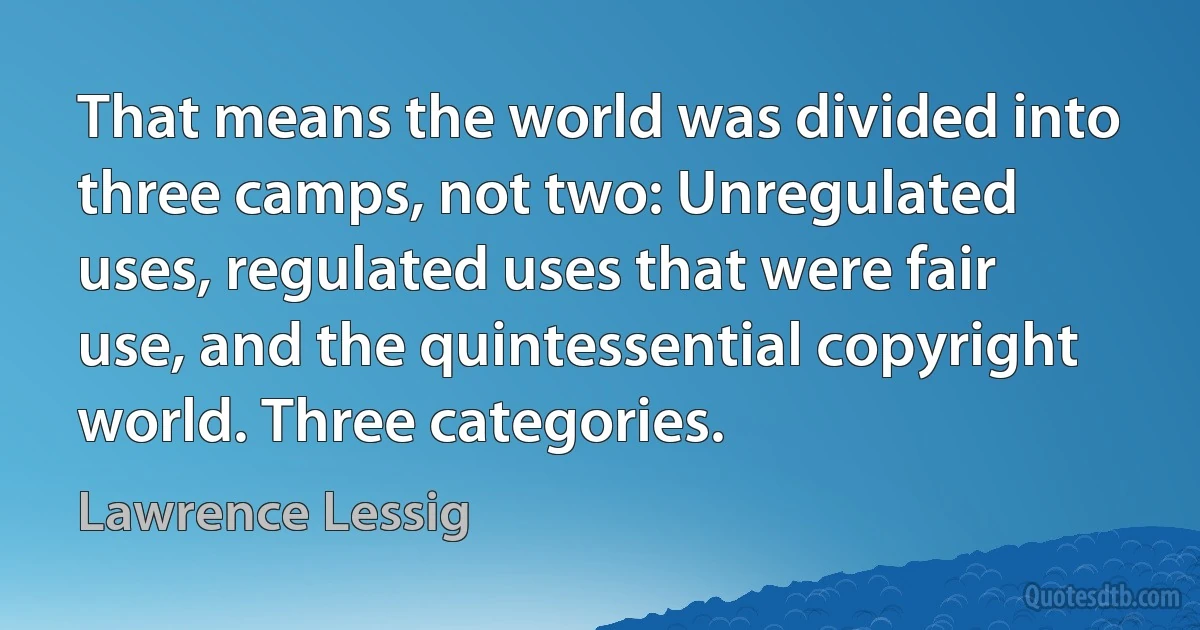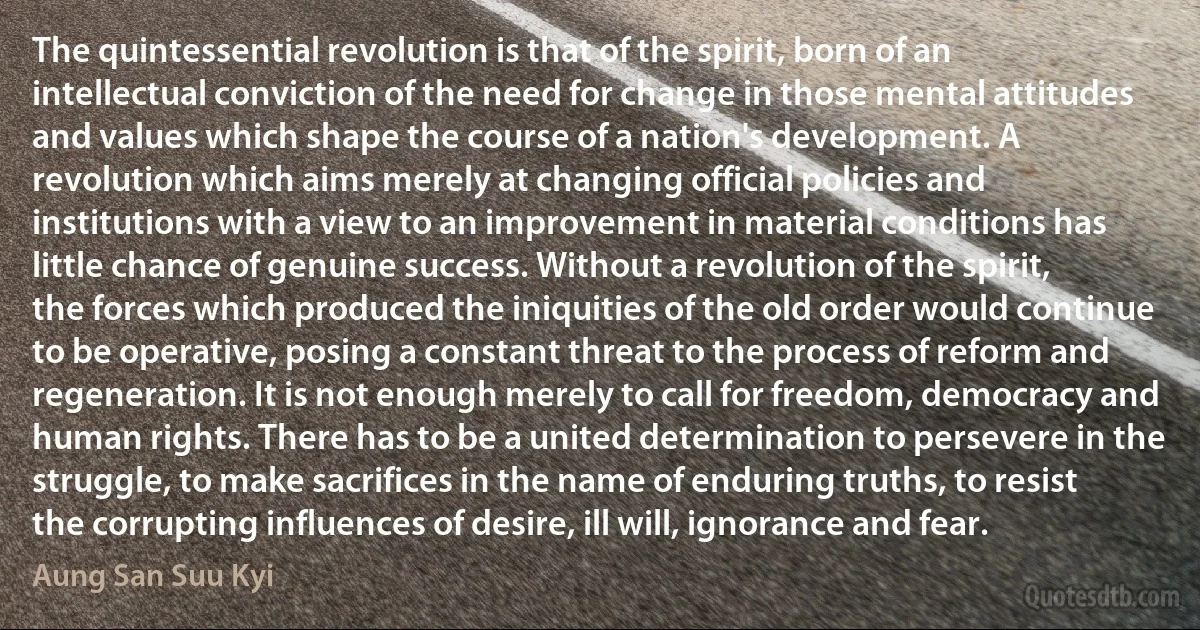Quintessential Quotes - page 2
The quintessential revolution is that of the spirit, born of an intellectual conviction of the need for change in those mental attitudes and values which shape the course of a nation's development. A revolution which aims merely at changing official policies and institutions with a view to an improvement in material conditions has little chance of genuine success.

Aung San Suu Kyi
Today, we are all saddened by the loss of Brooke Astor, a quintessential New Yorker and one of the great philanthropists of our time. Tens of thousands of New Yorkers were the beneficiaries of Mrs Astor's good will and kind nature, many unaware of the origins of the donations. Her contributions reached a wide variety of causes; The New York Public Library, and the entire city, would not be what they are today without her gracious support.

Brooke Astor
Drawn more to rendering the appearance of things with marked economy of means, infusing them with the fresh charm of feminine vision, Mlle Berthe Morisot succeeds marvelously in capturing the intimate presence of a modern woman or child, in the quintessential atmosphere of a beach or grassy lawn.. .We feel as if the charming woman and child are completely unaware that their pose.. ..is being perpetuated in this charming watercolor.

Berthe Morisot
A fundamental principle of the First Amendment is that all persons have access to places where they can speak and listen, and then, after reflection, speak and listen once more. The Court has sought to protect the right to speak in this spatial context. A basic rule, for example, is that a street or a park is a quintessential forum for the exercise of First Amendment rights. See Ward v. Rock Against Racism, 491 U. S. 781, 796 (1989). Even in the modern era, these places are still essential venues for public gatherings to celebrate some views, to protest others, or simply to learn and inquire.

Anthony Kennedy
Religion is a great force - the only real motive force in the world; but what you fellows don't understand is that you must get at a man through his own religion and not through yours. Instead of facing that fact, you persist in trying to convert all men to your own little sect, so that you can use it against them afterwards. You are all missionaries and proselytizers trying to uproot the native religion from your neighbor's flowerbeds and plant your own in its place. You would rather let a child perish in ignorance than have it taught by a rival sectary. You can talk to me of the quintessential equality of coal merchants and British officers; and yet you can't see the quintessential equality of all the religions.

George Bernard Shaw
Marx's ideas became the doctrines inspiring the labour and socialist movements of most of Europe. Mainly via Lenin and the Russian Revolution they became the quintessential international doctrine of twentieth-century social revolution, equally welcomes as such from China to Peru. Through the triumph of parties identified with these doctrines, versions of these ideas became the official ideology of the states in which, at their peak, something like a third of the human race lived, not to mention political movements of varying size an importance in the rest of the world. The only individually identifiable thinkers who have achieved comparable status are the founders of the great religions in the past, and with the possible exception of Muhammad none have triumphed on a comparable scale with such rapidity. No secular thinker can be named beside him in this respect.

Eric Hobsbawm
A law explains a set of observations; a theory explains a set of laws. The quintessential illustration of this jump in level is the way in which Newton's theory of mechanics explained Kepler's law of planetary motion. Basically, a law applies to observed phenomena in one domain (e.g., planetary bodies and their movements), while a theory is intended to unify phenomena in many domains. Thus, Newton's theory of mechanics explained not only Kepler's laws, but also Galileo's findings about the motion of balls rolling down an inclined plane, as well as the pattern of oceanic tides. Unlike laws, theories often postulate unobservable objects as part of their explanatory mechanism. So, for instance, Freud's theory of mind relies upon the unobservable ego, superego, and id, and in modern physics we have theories of elementary particles that postulate various types of quarks, all of which have yet to be observed.

Johannes Kepler


